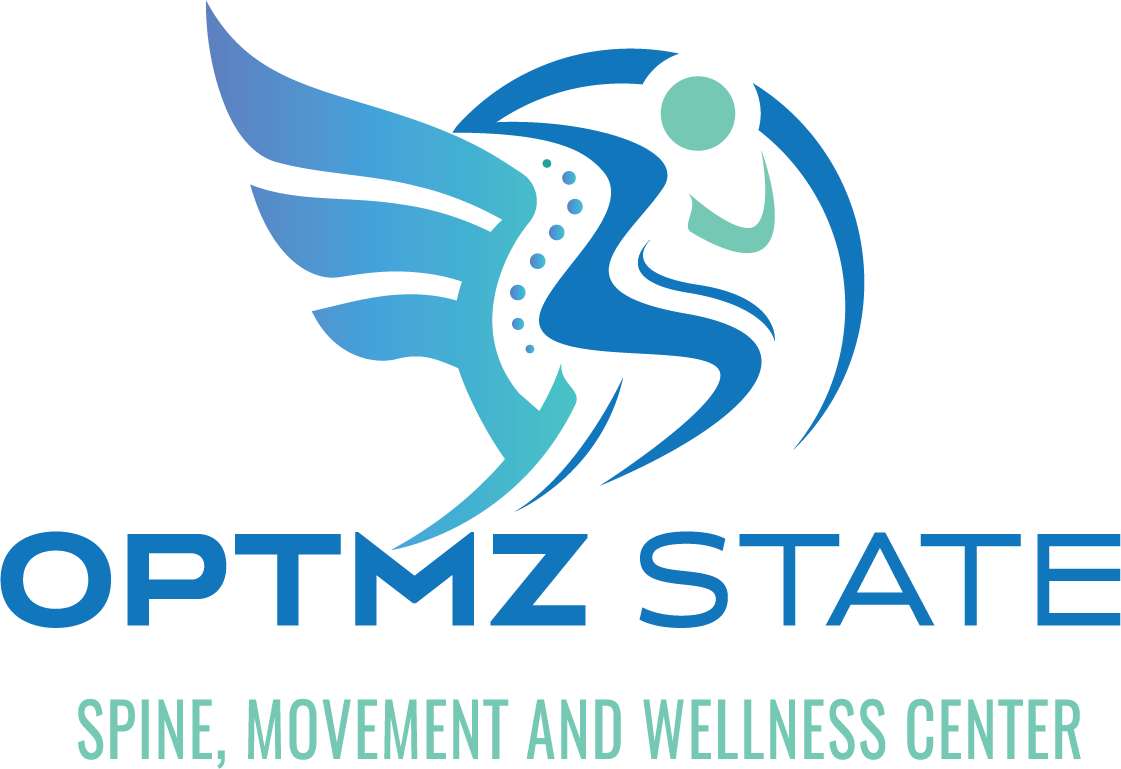You might often find yourself overwhelmed by the demands of daily life, and that stress can take a toll on your well-being. Fortunately, there are natural relaxation techniques that can help you regain balance and peace. From deep breathing exercises to gentle yoga, these methods promote a sense of calm and clarity. But which secrets are the most effective for you? Explore these ten strategies and discover how each can transform your approach to stress management and enhance your overall quality of life.
Deep Breathing Exercises
When you're feeling overwhelmed, deep breathing exercises can be a game-changer for stress relief. They're simple, effective, and can be done anywhere, anytime. By focusing on your breath, you shift your attention away from stressors and promote relaxation in your body.
Start by finding a comfortable position—sitting or lying down works best. Close your eyes if you feel comfortable and take a deep breath in through your nose, counting to four. As you inhale, imagine filling your lungs completely. Hold that breath for a count of four. Then, exhale slowly through your mouth for a count of six. With each breath out, visualize the tension leaving your body. Repeat this cycle for several minutes.
You might notice that your mind wanders during this process. That's perfectly normal! When you catch your thoughts drifting, gently guide your focus back to your breath. This practice not only calms your mind but also helps you develop a greater awareness of your body's responses to stress.
Incorporating deep breathing exercises into your daily routine can greatly improve your resilience against stress. Try setting aside just five minutes each day for this practice. You'll likely find that it enhances your overall well-being, making it easier to face daily challenges.
Mindfulness Meditation
Building on the calming effects of deep breathing, mindfulness meditation offers another powerful tool for reducing stress. This practice encourages you to stay present, focusing on the moment without judgment. By doing so, you can train your mind to detach from worries about the past or future, which often fuel anxiety.
To begin, find a quiet space where you won't be disturbed. Sit comfortably, close your eyes, and take a few deep breaths. As you settle in, bring your attention to your breath. Notice the sensation of air entering and leaving your body. When thoughts intrude—and they will—gently acknowledge them and return your focus to your breath. This act of bringing your mind back is the essence of mindfulness.
Start with just a few minutes each day, gradually increasing the duration as you become more comfortable. You don't need to empty your mind; instead, allow thoughts to come and go like clouds drifting across the sky. Over time, you'll find it easier to maintain focus and cultivate a sense of calm.
Incorporating mindfulness meditation into your daily routine can greatly reduce stress levels. You might notice improvements in your overall mood, better sleep quality, and a greater sense of well-being.
Nature Walks
Taking a nature walk can greatly boost your mood and reduce stress.
You'll find that immersing yourself in the sights and sounds of the outdoors brings a revitalizing perspective.
Let's explore the benefits of these walks and some tips to make the most of your time outside.
Benefits of Nature Walks
Stepping into nature can transform your mood and reduce stress in remarkable ways. When you take a nature walk, you'll not only enjoy the fresh air but also experience several powerful benefits that uplift your spirit and calm your mind.
- Natural Beauty: As you stroll, the vibrant colors of flowers and the lush greens of trees create a soothing backdrop that can instantly brighten your day.
- Fresh Air: Inhale deeply and savor the crisp, clean air, which invigorates your lungs and clears your mind, helping you feel more alert and focused.
- Sounds of Nature: Listen to the gentle rustle of leaves and the cheerful songs of birds, which provide a calming soundtrack that drowns out daily stressors.
- Mindfulness Practice: Walking among nature encourages you to be present, allowing you to connect with your surroundings and let go of racing thoughts.
Tips for Enjoyable Walks
When you head out for a nature walk, a few simple tips can make your experience even more enjoyable. First, choose a route that excites you. Whether it's a local park or a nearby trail, pick a place that captivates your senses.
Don't forget to wear comfortable shoes; they'll keep you focused on the beauty around you rather than on any discomfort.
Next, consider the time of day. Early mornings or late afternoons often provide cooler temperatures and stunning light, enhancing the scenery. Bring along a friend or family member to share the experience, or go solo if you seek solitude.
As you walk, take time to engage with your surroundings. Notice the colors, sounds, and scents of nature, and let your mind wander freely.
Don't rush—allow yourself to stop and appreciate interesting plants or wildlife.
Finally, breathe deeply and enjoy the moment. If you feel stressed, a few deep breaths can help center your mind and body.
Herbal Teas
Herbal teas offer a soothing way to unwind and combat stress after a long day. With their calming properties and delightful flavors, they can be your perfect companion for relaxation.
Imagine curling up in your favorite chair, a warm cup in hand, as you sip on a comforting brew. Here are some herbal teas that can help you find that much-needed tranquility:
- Chamomile – Known for its gentle sedative effects, chamomile tea can help ease anxiety and promote restful sleep. Its sweet, apple-like flavor is a bonus.
- Lavender – The aromatic scent of lavender isn't just pleasant; it can also reduce stress and enhance mood. A cup of lavender tea can transport you to a peaceful meadow.
- Peppermint – This invigorating tea not only refreshes but also helps relieve tension headaches. Its cool, minty taste can help clear your mind and uplift your spirits.
- Lemon Balm – With a mild, lemony flavor, lemon balm tea is great for easing anxiety and improving cognitive function. It's like a gentle hug in a cup.
Brewing a cup of herbal tea is simple—just steep your chosen leaves in hot water for a few minutes.
As you sip, take a moment to breathe deeply and let the warmth wash over you. Incorporating herbal teas into your routine can be a delightful way to melt stress away and restore your sense of calm.
Aromatherapy
The calming effects of herbal teas can be beautifully complemented by the practice of aromatherapy. This holistic approach uses essential oils derived from plants to enhance your physical and emotional well-being. You don't need to be an expert to get started; simply choose scents that resonate with you. Popular options include lavender for relaxation, eucalyptus for clarity, and peppermint for invigoration.
To practice aromatherapy, you can use a diffuser to disperse the essential oils into the air, creating a soothing environment. Alternatively, you can add a few drops of your chosen oil to a warm bath, allowing the steam to carry the fragrance around you.
If you prefer a more direct approach, try applying diluted oils to your pulse points, like your wrists or temples. This method can provide immediate relief from tension.
It's crucial to guarantee you're using high-quality, pure essential oils, as synthetic fragrances may not provide the same benefits. As you explore different scents, pay attention to how they affect your mood and stress levels.
Creating a personalized aromatherapy routine can be a powerful tool in your relaxation arsenal. You might even find that combining aromatherapy with your favorite herbal tea enhances the overall experience, making your relaxation time even more effective.
Progressive Muscle Relaxation
Progressive Muscle Relaxation is a simple yet effective technique that helps you release tension throughout your body.
In this section, you'll learn a step-by-step guide to practice it and discover the benefits it can bring to your stress levels.
Technique Overview
As you explore ways to manage stress, Progressive Muscle Relaxation (PMR) stands out as an effective technique that helps you release tension throughout your body.
This method focuses on systematically tensing and then relaxing different muscle groups, allowing you to become more aware of physical sensations and stress levels.
To visualize how PMR works, think about these four key steps:
- Tension: Imagine clenching your fists tightly, feeling the muscles engage and the pressure build.
- Release: Now, let go of that tension, feeling your muscles soften and relax.
- Awareness: Notice the contrast between tension and relaxation, recognizing how your body feels lighter and more at ease.
- Breath: Incorporate deep, calming breaths to enhance the relaxation experience, allowing your mind to settle alongside your body.
Step-by-Step Guide
To effectively practice Progressive Muscle Relaxation, follow this step-by-step guide that will lead you through each phase of the technique.
Start by finding a quiet and comfortable space where you won't be disturbed. Sit or lie down in a relaxed position. Take a few deep breaths, inhaling slowly and exhaling fully to center yourself.
Begin with your toes. Tense the muscles in your feet for about five seconds, then release. Notice the difference between tension and relaxation. Move to your calves, tensing for five seconds before letting go.
Continue this process, working your way up your body: thighs, hips, abdomen, chest, arms, shoulders, neck, and finally your face.
As you tense each muscle group, focus on the sensations in your body. After you've completed the sequence, take a moment to breathe deeply and enjoy the feeling of relaxation.
If your mind wanders, gently guide it back to your body. Aim to practice this technique at least once a day for the best results. With time, you'll become more adept at recognizing and releasing tension, helping you manage stress effectively.
Benefits of Practice
Practicing Progressive Muscle Relaxation (PMR) offers numerous benefits that can greatly enhance your overall well-being. By engaging in this technique, you'll notice a remarkable reduction in stress and tension, allowing you to feel more at ease.
Here are four key advantages you can expect:
- Improved Sleep Quality: By relaxing your muscles and calming your mind, PMR helps you drift off into a deeper, more restful sleep.
- Reduced Anxiety: As you focus on each muscle group, you'll learn to release built-up tension, which can considerably lower your anxiety levels.
- Enhanced Focus: With reduced stress and tension, your mind becomes clearer, allowing you to concentrate better on tasks at hand.
- Physical Relief: PMR helps alleviate physical discomfort, such as headaches or muscle soreness, by promoting relaxation and blood flow.
Incorporating PMR into your routine can transform your approach to stress management.
You'll find it's not only a powerful tool for relaxation but also a pathway to a healthier, more centered life.
Give it a try and experience the benefits for yourself!
Gentle Yoga
Gentle yoga invites you to unwind and reconnect with your body, making it an ideal practice for stress relief. This form of yoga focuses on slow movements, deep stretches, and mindful breathing, helping you cultivate a sense of calm and presence. As you flow through gentle poses, you'll notice tension melting away, allowing your mind to pause and recharge.
When you step onto your mat, take a moment to set an intention for your practice. Whether it's letting go of worries or simply embracing the present moment, this intention can guide you as you move. Incorporating deep, conscious breaths into your practice enhances relaxation, inviting oxygen to flow freely throughout your body and soothing your nervous system.
Each pose in gentle yoga is designed to be accessible, regardless of your experience level. You can adapt movements to fit your body's needs, ensuring you feel comfortable and supported. Ranging from seated stretches to restorative poses, every posture allows you to explore your limits gently, fostering a deeper connection with yourself.
As you practice regularly, you may notice improved flexibility, reduced muscle tension, and a greater sense of emotional balance. Gentle yoga not only calms your mind but also encourages self-compassion and mindfulness.
Journaling
Journaling can be a powerful tool for reducing stress and boosting your mental well-being. By putting your thoughts on paper, you can gain clarity and process your emotions more effectively.
Let's explore the benefits of journaling and some tips to make your writing practice more effective.
Benefits of Journaling
When you put pen to paper, the act of journaling can transform your thoughts and emotions into tangible insights. This simple practice offers numerous benefits that can help reduce stress and enhance your overall well-being.
Here are four key advantages of journaling:
- Emotional Clarity: Writing helps you untangle your feelings, allowing you to understand your emotions better and identify triggers that cause stress.
- Problem-Solving: By expressing your thoughts on paper, you can brainstorm solutions to challenges, giving you a sense of control over your life.
- Stress Reduction: The act of journaling itself can be meditative. As you write, you release built-up tension, leading to a calmer state of mind.
- Self-Reflection: Journaling encourages you to evaluate your experiences and thoughts, fostering personal growth and resilience.
Incorporating journaling into your daily routine can create a safe space for self-expression, helping you navigate life's ups and downs with greater ease.
Tips for Effective Writing
Writing effectively can enhance your journaling experience and deepen the benefits you gain from it. To start, set a specific time and place for your journaling. This consistency helps you create a habit, making it easier to express your thoughts.
Next, write freely without worrying about grammar or structure. Let your ideas flow; this is your personal space, and there's no right or wrong way to do it.
Consider using prompts to kickstart your writing. Questions like "What made me smile today?" or "What challenges did I face?" can guide your thoughts and help you reflect more deeply. Don't hesitate to explore your feelings—honesty is key.
Try to write regularly, even if it's just a few sentences. This practice helps you track your progress and notice patterns in your thoughts and emotions.
Finally, revisit your entries occasionally. Reflecting on past entries can provide valuable insights and show how you've grown over time.
Listening to Music
Music possesses a remarkable ability to evoke emotions and shift our mental state, making it a powerful tool for relaxation. When you're feeling stressed or overwhelmed, turning to music can help you unwind and regain your focus.
Whether you prefer calm melodies or uplifting tunes, the right playlist can transport you to a more peaceful place.
Here are four ways to enhance your relaxation experience through music:
- Create a Calm Environment: Find a quiet spot where you won't be disturbed. Dim the lights, and settle into a comfortable chair or lie down. Let the ambiance set the stage for your musical journey.
- Curate Your Playlist: Choose tracks that resonate with you. Look for soothing sounds like classical, jazz, or acoustic tunes. You might even explore nature sounds or binaural beats designed to promote relaxation.
- Practice Mindful Listening: Focus on the music. Close your eyes and allow the melodies to wash over you. Notice the instruments, the harmonies, and how each note makes you feel. This mindfulness can deepen your sense of calm.
- Incorporate Movement: If you feel inspired, let the music guide your body. Whether it's gentle swaying or a slow dance, movement can release pent-up tension and enhance your relaxation.
Warm Baths
Taking a warm bath can be one of the simplest yet most effective ways to melt away stress. When you soak in warm water, your muscles relax, tension eases, and your mind begins to quiet. It's a perfect time to disconnect from your busy day and focus on nurturing yourself.
To enhance your bathing experience, consider adding Epsom salts or essential oils. Epsom salts can help soothe sore muscles and reduce inflammation, while essential oils like lavender or chamomile promote relaxation and calmness. Just a few drops in your bathwater can create a serene atmosphere that's perfect for unwinding.
Lighting candles or playing soft music can further elevate the ambiance. Set the mood by dimming the lights, allowing you to feel cocooned in your own personal retreat. If you prefer, bring along a good book or a favorite podcast to make the experience even more enjoyable.
Don't forget to take deep breaths while you're in the bath. Inhale slowly through your nose, hold it for a moment, and exhale gently through your mouth. This simple practice helps ground you and promotes mindfulness, making your warm bath a holistic relaxation ritual.
After your bath, take a moment to savor the tranquility you've created. You'll likely notice that your worries feel lighter and your mind is clearer.
Conclusion
By embracing these 10 natural relaxation secrets, you can effectively reduce stress and enhance your well-being. Whether you're taking a nature walk, practicing deep breathing, or enjoying a warm bath, each method offers a unique way to cultivate peace in your life. Don't forget to create a calming environment and explore what resonates most with you. Start incorporating these practices today, and discover how simple changes can lead to a more tranquil and fulfilling life.



